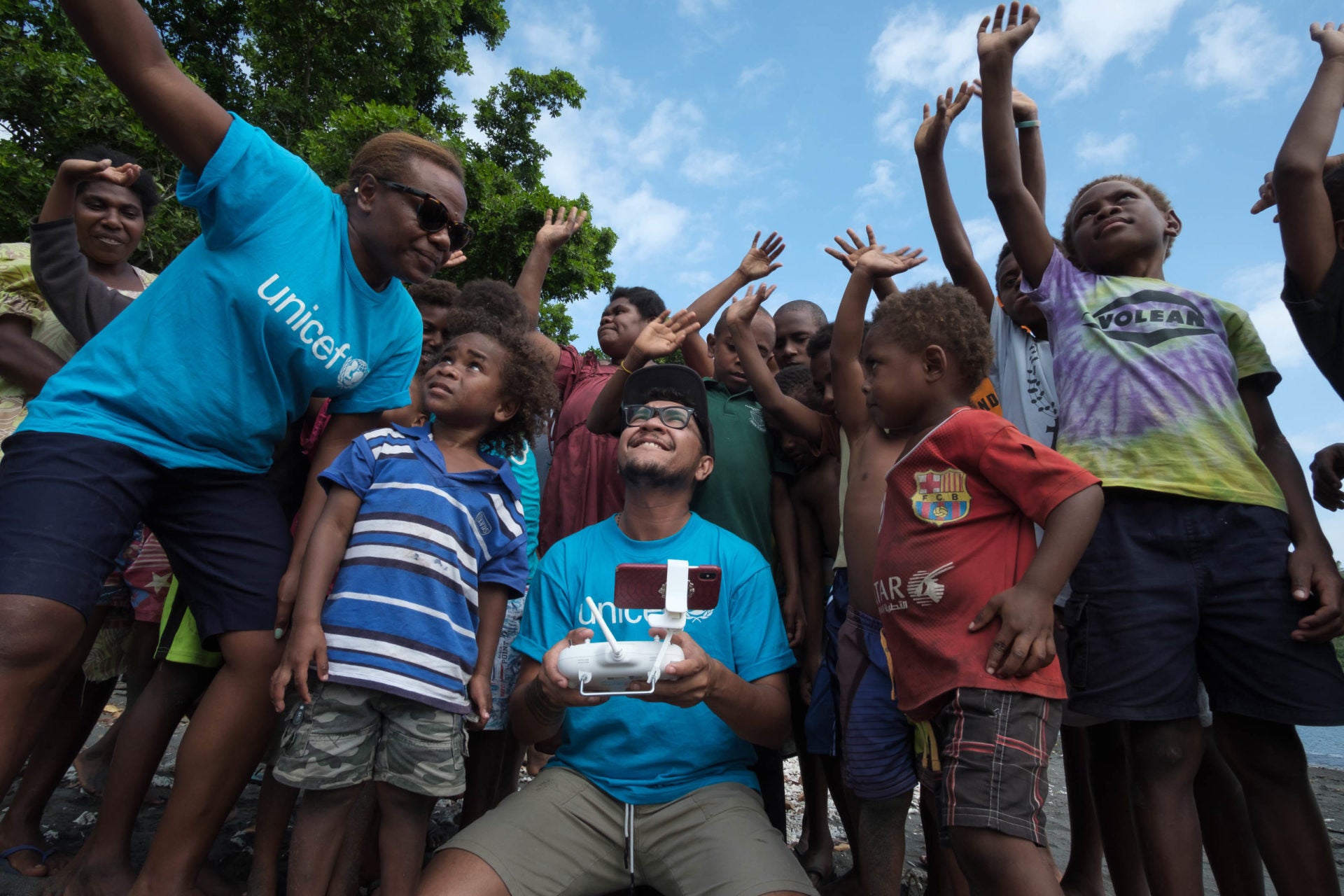
A one-month-old baby has become the first person in the world to receive a vaccine delivered by drone.
Baby Joy Nowai is from Vanauatu, a remote country located in the South Pacific where one in five children are not fully immunised. Thanks to drone technology, she has now been given hepatitis and tuberculosis vaccines.
The drone had to travel above treacherous mountainous terrain, to get to the small community of Cook’s Bay, which does not have a health centre or electricity. As vaccines must be kept at a specific temperature, transporting them to remote locations, or those with limited infrastructure, is a challenge, and leads to many children missing important childhood vaccines.
12 other children and five pregnant women were also vaccinated after the drone landed after its 40km flight.
How vaccine drone technology can benefit remote communities
Miriam Nampil, the nurse who administered the vaccine, explains how drone technology can help deliver healthcare to remote communities, a task that is very difficult using conventional methods:
“It’s extremely hard to carry ice boxes to keep the vaccines cool while walking across rivers, mountains, through the rain, across rocky ledges. I’ve relied on boats, which often get cancelled due to bad weather. As the journey is often long and difficult, I can only go there once a month to vaccinate children. But now, with these drones, we can hope to reach many more children in the remotest areas of the island.”
How well do you really know your competitors?
Access the most comprehensive Company Profiles on the market, powered by GlobalData. Save hours of research. Gain competitive edge.
 Company Profile – free sample
Company Profile – free sampleThank you!
Your download email will arrive shortly
Not ready to buy yet? Download a free sample
We are confident about the unique quality of our Company Profiles. However, we want you to make the most beneficial decision for your business, so we offer a free sample that you can download by submitting the below form
By GlobalData
This comes after Vanauatu Ministry of Health, with support from UNICEF, conducted drone trials with two drone operators, Swoop Aero and WingCopter.
During the drone flight, the vaccines were carried in Styrofoam boxes with ice-packs with a temperature logger. An electronic indicator is triggered if the temperature of the vaccines swings out of acceptable range.
This is also the first time globally that a government is contracting a commercial drone company to transport vaccines to remote areas, an important milestone in collaborations between private technology organisations and governments.
In the long term, the Government of Vanuatu wants to integrate the drone delivery of vaccines into its national immunisation programme. Eventually, the same technology could be used deliver vaccines or other payloads throughout the world.
Some companies are also trialing the use of 4G mobile networks to fly drones, an important step in using drones to reach remote areas. It is an example of such technology being used for good, with drones now playing a key role in firefighting.
Henrietta Fore, UNICEF Executive Director said:
“Today’s small flight by drone is a big leap for global health. With the world still struggling to immunize the hardest to reach children, drone technologies can be a game changer for bridging that last mile to reach every child.”







